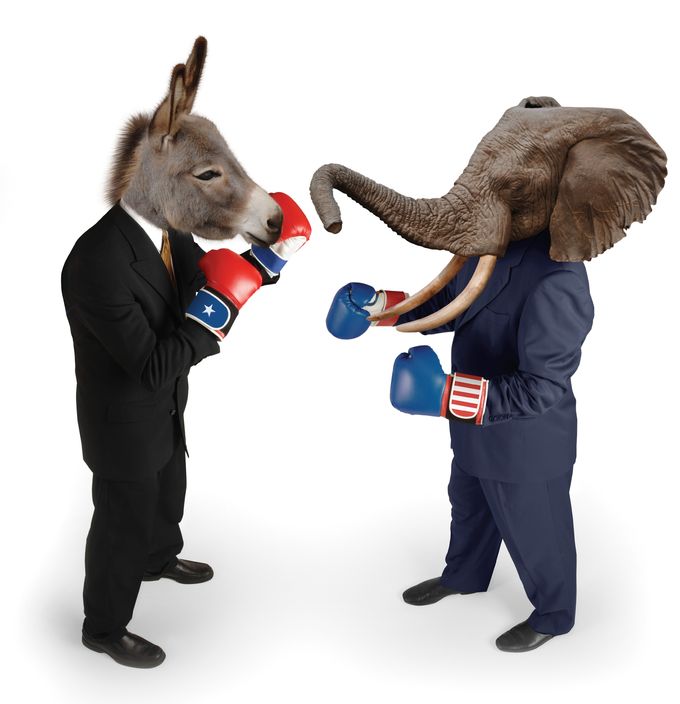A Party’s Success or a Nation’s Well-Being?
April 12, 2016
Conflicts happen in politics. Period.
But what happens when those conflicts result in preserving a party’s dominance rather than benefiting the nation as a whole?
With the unexpected death of Supreme Court Justice Antonin Scalia on February 13, 2016, attention was brought to just how party-oriented some U.S. politicians are.
Before President Obama had a chance to nominate a replacement for Scalia in the Supreme Court, a power that is given to the president in the Constitution, Senate Majority Leader Mitch McConnell, among other Republican congressmen, announced that the Senate would not consider confirming someone who was nominated by a democratic president.
By delaying the confirmation of a Supreme Court justice, Republican congressmen are banking on the hope that a 2016 election will result in a Republican president and therefore a Supreme Court nomination influenced by republican ideologies.
However, with the March 16, 2016, nomination of Merrick Garland, the moderate chief judge of the United States Court of Appeals for the District of Colombia circuit, “Mr. Obama dared Republican senators to ignore public pressure and make good on their promise to block consideration of any nominee until after the next president is chosen,” according to The New York Times.
Currently, the Supreme Court is composed of nine justices. With the death of Scalia, it is left with eight, meaning that legislation cannot pass with a five to four majority, resulting in gridlock. Because of this, legislation is being “pigeonholed” — put aside for an indefinite time — leaving citizens without an answer on important cases.
The phenomenon that is taking place is that party leaders are more concerned about seeing an outcome that favors their political party than an outcome that benefits the citizens of the United States, as suggested by Thomas Carsay and Geoffrey Layman of the Washington Post.
Though the Supreme Court fiasco illustrates loyalty to one party, the 2016 presidential candidates are testing party members’ loyalty, especially those of the Republican Party.
Donald Trump, to many Republicans, has defaced what the GOP stands for, and has forced them to look for other prospects for the next president of the United States.
A devout Republican who wishes to remain anonymous stated, “I can’t imagine voting for a democratic president, but Hillary Clinton is the only person who I feel safe with having in office. She has experience and, frankly, Donald Trump terrifies me.”
So why do Republican Party leaders find it crucial to abide by their loyalty to their party while constituents feel like their elected officials can rearrange their vote when they are feeling threatened? The answer: loyalty oaths.
Initially, according to the Huffington Post, the party loyalty oath, which was signed by Republican candidates under the R.N.C (Republican National Committee), was created to stop Trump from running as a third-party candidate if he didn’t do well in the primaries. However, that was not the case. Trump did well in the primaries, which was unforeseen by many people, and as a result, the oath was considered “null and void.”
In a blog post by Chris Weigant of the Huffington Post, he explains how the loyalty oath has affected candidates: “Trump now says he doesn’t consider himself bound by it any more [the oath], because the party has been ‘unfair’ to him. He’s got a point — when was the last time we’ve seen a major party fervently doing everything they possibly can to deny their nomination to the guy who’s getting the most votes?”
Political party members are devoutly loyal to their candidates and peers as long as they are the “right” candidates and peers. For example, Ted Cruz has exemplified all of the “proper” republican ideologies and actions and therefore has been more favored by the Republican Party than Trump, who has tested republican ethics with his words and actions.
Party loyalty is currently being tested by two political events: the Supreme Court nomination and the ongoing 2016 presidential election. The Supreme Court nomination shows a force of loyalty to be reckoned with, and the election shows party members hesitant about the guarantee of prosperity in the nation with candidates who aren’t a reflection of their “ideal” party member.
So, which is more important? Saving face and remaining devoted to a potentially flawed ideal, or breaking free to help the nation prosper?
You decide.
